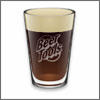PanzerBanana
Well-Known Member
Ok so are there any traditionally, ie "historically" brewed porters out there? Other than St. Peter's that is?
Scouring the net for the truth, I was only able to find that St. Peter's is the only brewery that makes a semi-traditional porter by blending an aged and new ale. Historically three were blended.
The porters we know now aren't "traditional". They're the result of brewers cutting to the chase and brewing a single beer to have the flavor and character of the three. An older ale, a newer ale, and a cheap pale.
Which then gained its popularity and as the style evolved, and stronger versions came into being. Such as Stout Porters. Which were eventually shortened to "Stouts" which at that time rightly meant they were a stronger beer.
Eventually the two styles split to become different beers. And have come to be quite a mystery since they're largely similar, with the only real difference being the roasted barley. And of course "Porter" naturally remaining uniquely British. Except for being used now, to likely describe a dark beer which isn't a "stout" due to not having roasted barley.
Now that the beer history is out of the way. Are there any other traditional or semi-traditional porters out there?
Sure maybe it will taste the same as I'm used to, since porters came to be brewed as a single beer. And I'm ultimately not missing out.
However, I get a kick out of old fashioned attention to detail and touches like that.
Scouring the net for the truth, I was only able to find that St. Peter's is the only brewery that makes a semi-traditional porter by blending an aged and new ale. Historically three were blended.
The porters we know now aren't "traditional". They're the result of brewers cutting to the chase and brewing a single beer to have the flavor and character of the three. An older ale, a newer ale, and a cheap pale.
Which then gained its popularity and as the style evolved, and stronger versions came into being. Such as Stout Porters. Which were eventually shortened to "Stouts" which at that time rightly meant they were a stronger beer.
Eventually the two styles split to become different beers. And have come to be quite a mystery since they're largely similar, with the only real difference being the roasted barley. And of course "Porter" naturally remaining uniquely British. Except for being used now, to likely describe a dark beer which isn't a "stout" due to not having roasted barley.
Now that the beer history is out of the way. Are there any other traditional or semi-traditional porters out there?
Sure maybe it will taste the same as I'm used to, since porters came to be brewed as a single beer. And I'm ultimately not missing out.
However, I get a kick out of old fashioned attention to detail and touches like that.


